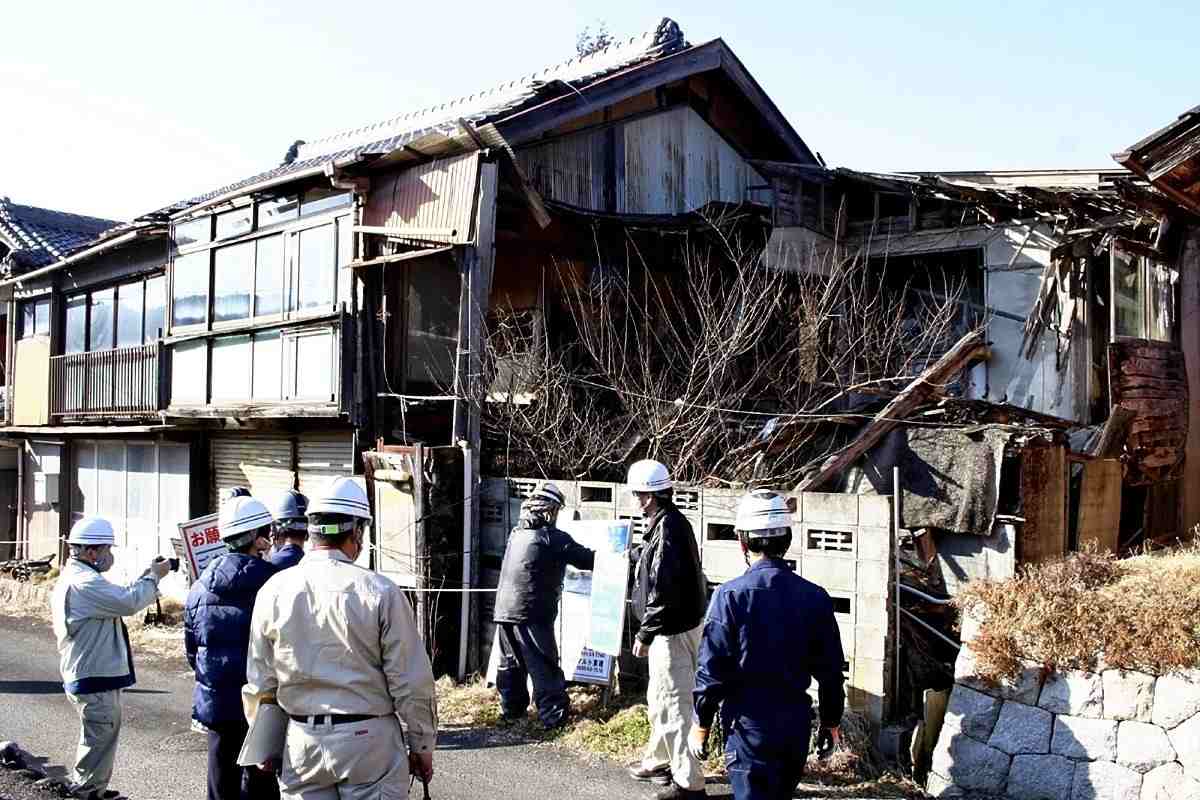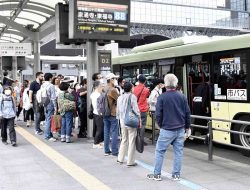
A vacant house to be demolished by administrative enforcement in Nabari City, Mie Prefecture, on Thursday.
7:00 JST, January 17, 2023
The government has decided to revise the Vacant Houses Special Measures Law in order to tackle the increasing number of abandoned houses, The Yomiuri Shimbun has learned from government officials.
With the number of vacant houses growing due to the declining population, the revised law will establish new criteria for vacant houses that need to be improved and encourage early action regarding properties that are inadequately managed. The Land, Infrastructure, Transport and Tourism Ministry aims to submit the revised bill to the ordinary Diet session to be convened on Jan. 23.
Currently, the fixed asset tax on residential land can be reduced to one-sixth. This is believed to be one of the reasons why dilapidated and vacant houses are left unattended instead of being demolished and cleared.
The Vacant Houses Special Measures Law, which went into full effect in 2015, defines “specified vacant houses” as those that are in danger of collapse. The law allows local governments to suspend preferential tax treatment, and demolish them through administrative enforcement if the owner does not improve the situation.
However, there are more than 200,000 vacant houses that are expected to deteriorate if left unattended, even if they are not classified as specified vacant houses.
In order to encourage owners to take action against deteriorating vacant houses at an earlier stage, the revised bill will establish a new category of “unmanaged vacant houses” in addition to “specified vacant houses.” These are envisioned as vacant houses with such problems as broken windows and overgrown weeds.
As with specified vacant houses, the administration will be able to provide guidance and recommendations to owners and remove tax incentives. The criteria for unmanaged vacant houses will be defined in the guidelines.
The Land, Infrastructure, Transport and Tourism Ministry also plans to introduce a system under which municipalities will designate NPOs and other organizations that facilitate the use of vacant houses and provide owners with advice on their management.
As of 2018, there were an estimated 3.5 million vacant houses in Japan that were not used for residential purposes, excluding vacation homes and rental properties. So far, local governments have identified 40,000 of them as specified vacant houses, and only 20,000 of them have been demolished or repaired.
According to the ministry, the number of vacant houses has increased by 90% over the past 20 years and is estimated to grow to 4.7 million by 2030. The ministry aims to reduce the number to about 4 million by utilizing the revised law.
Top Articles in Society
-

Producer Behind Pop Group XG Arrested for Cocaine Possession
-

Man Infected with Measles Reportedly Dined at Restaurant in Tokyo Station
-

Man Infected with Measles May Have Come in Contact with Many People in Tokyo, Went to Store, Restaurant Around When Symptoms Emerged
-

Woman with Measles Visited Hospital in Tokyo Multiple Times Before Being Diagnosed with Disease
-

Australian Woman Dies After Mishap on Ski Lift in Nagano Prefecture
JN ACCESS RANKING
-

Producer Behind Pop Group XG Arrested for Cocaine Possession
-

Japan PM Takaichi’s Cabinet Resigns en Masse
-

Man Infected with Measles Reportedly Dined at Restaurant in Tokyo Station
-

Israeli Ambassador to Japan Speaks about Japan’s Role in the Reconstruction of Gaza
-

Videos Plagiarized, Reposted with False Subtitles Claiming ‘Ryukyu Belongs to China’; Anti-China False Information Also Posted in Japan

























